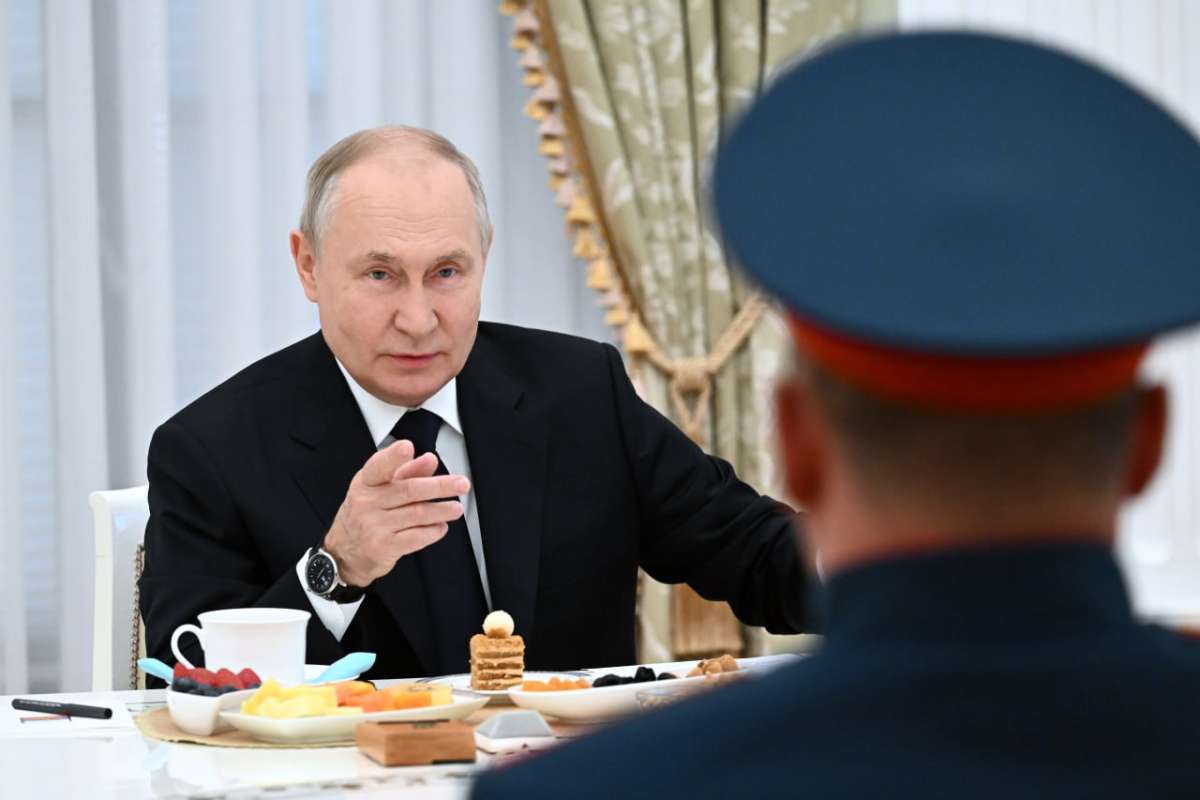Zelensky has invited Trump, who has said he could end the war in 24 hours if reelected…reports Asian Lite News
Russian President Vladimir Putin will not make peace in Ukraine before he knows the results of the November 2024 US election, a senior US State Department official said on Tuesday, amid concerns that a potential victory for former President Donald Trump could upend Western support for Kyiv.
Trump, who is seeking reelection in 2024 and is the leading candidate for the Republican presidential nomination, has been sharply critical of US support for Kyiv.
A senior official briefing reporters after a meeting of NATO foreign ministers in Brussels said the alliance reiterated its support for Ukraine knowing that a peace agreement in the next year is unlikely.
“My expectation is that Putin won’t make a peace or a meaningful peace before he sees the result of our election,” said the official, who spoke on condition of anonymity to discuss the outcomes of the meeting.
Asked whether they were expressing a personal opinion or the view of the US government, the official said it was a “widely shared premise.”
“That was the context in which the allies all expressed strong support for Ukraine” in the NATO meeting on Tuesday, the official added, without mentioning Trump by name or explicitly saying how the election result would affect support for Ukraine.
President Joe Biden, a Democrat, has given massive military aid and other support to Kyiv since Russia’s February 2022 full-scale invasion, but additional funding for Ukraine is being held up by the Republican-controlled House of Representatives.
Ukraine’s President Volodymyr Zelensky earlier this month invited Trump, who has said he could end the war in 24 hours if reelected, to Ukraine to see the scale of the conflict for himself.
Russia has never refused talks, says Putin
Earlier, Putin had said that Moscow has never refused peace negotiations with Kyiv and blamed Ukraine for pulling out of the negotiation process. He called military actions a tragedy for people and stressed that the world must think about how to stop this tragedy.
In his virtual address at the G20 Leaders Summit, Putin said that some of the leaders in their speeches said that they are “shocked by Russia’s ongoing aggression in Ukraine.”
Putin said, “Of course, military actions are always a tragedy for people, families, and the country as a whole. And, of course, we must think about how to stop this tragedy.”
“By the way, Russia has never refused peace negotiations with Ukraine. It is not Russia, but Ukraine, that has publicly announced that it is withdrawing from the negotiation process. And moreover, a decree was signed by the head of state prohibiting such negotiations with Russia,” he added.
Putin emphasised that the situation in the world requires collective and consensus decisions that reflect the opinions of the majority of the international community, including developed and developing nations.
He said, “Now the situation in the global economy and in the world as a whole requires collective, consensus decisions that reflect the opinions of the overwhelming majority of the international community–both developed and developing countries.”
“The world is undergoing processes of radical transformation. New powerful centres of global economic development are emerging and strengthening. A significant share of global investment, trade and consumption activity is shifting to Asian, African and Latin American regions, where the majority of the world’s population lives,” he added.
He stated that the first ships with free Russian grain had been sent to Africa. He stressed that the turbulence in the markets is increasing. Putin noted that the world economy is experiencing a “direct consequence of the ill-conceived macroeconomic policies of some states.”
“Turbulence in the markets is increasing. Chronic problems in the international financial sector, energy and food security are worsening. By the way, Russia fulfills all its obligations in this area and remains one of the largest food exporters. And today, I want to inform you that the first ships with free Russian grain have been sent to Africa, for example, to countries in need,” he said.
Putin said that “unlawful restrictions” on trade for the sake of strengthening their own competitiveness continue to have a negative impact. He also spoke about the explosion of the Nord Stream gas pipeline system.
The Russian President said, “Unlawful restrictions on trade and the biased-climate agenda of some countries for the sake of strengthening their own competitiveness continue to have a negative effect.To eliminate competitors and gain advantages, unfair methods of competition are also used.”
He further said, “I mean, in particular, not only the destruction of transport and logistics chains and international payment channels, but also acts of state terrorism. A blatant example of this is the explosion of the Nord Stream gas pipeline system, laid along the bottom of the Baltic Sea.”
ALSO READ: Sisi and Putin Push for Gaza Ceasefire in Urgent Phone Call



